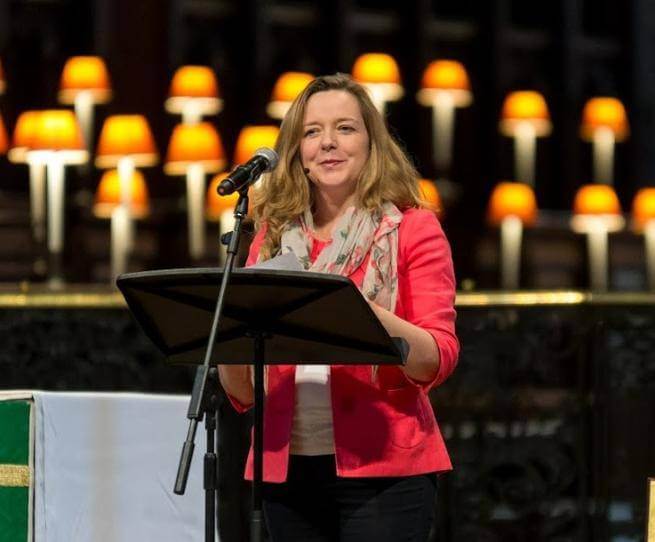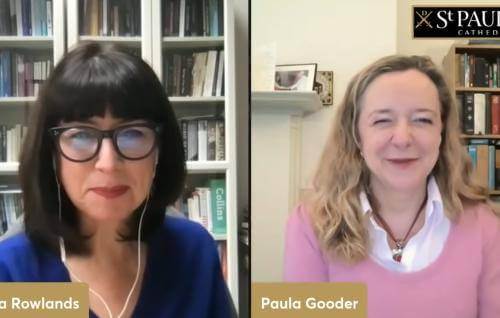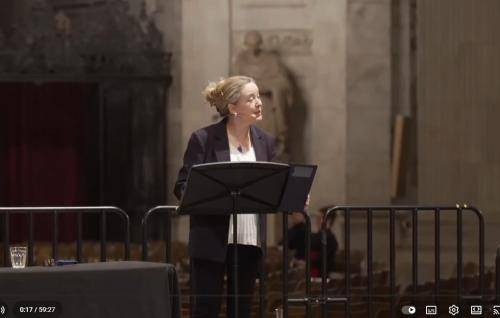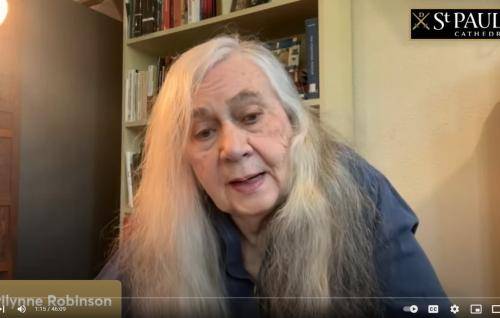Love is...
1. Love is all around
‘Love is all around’ declares the 1967 song from the Troggs. In February it certainly feels that way, if we believe what the shops and the media tell us. Indeed, it is almost impossible to move through a supermarket in February without tripping over buckets of roses, or displays of heart shaped chocolates. This kind of love, the love of Valentine’s day, is a very particular kind of love – romantic love. Don’t get me wrong, I’m a big fan of it but there’s much more to love than romance.
The Christian tradition has love right at its heart but its understanding of love is deeper, broader and far more important than romantic love. Love in the Christian tradition is beautifully summarised in 1 John 4.19: ‘we love because God first loved us.’ Whenever I read that verse, I am reminded of Baz Luhrmann’s film Moulin Rouge which begins and ends with a line from an old Nat King Cole song: ‘The greatest thing you’ll ever learn is just to love and be loved in return.’ The author of 1 John might agree but would probably turn the phrase around: ‘The greatest thing you’ll ever learn is to be loved and to love in return.’
God is love. It is the very essence of who God is. One of the key words used throughout the Old Testament for God’s character is the word ‘hesed’, which is very hard to capture in English. Some translate it as covenant love; others as loving kindness; others still as steadfast love. It has at its heart the idea of an unwavering, certain love that knows no end.
One of the hardest lessons we can learn in our journey of Christian faith – and one that I find needs learning over and over again – is that God loves us with a love so infinite and so great that we will never truly comprehend it. All we can do is to learn to rest in that love and to let that love pour out of us to the world around us.
2. What is love?
‘I want to know what love is’, declares the 1984 hit by the rock band Foreigner. I suspect they would have been somewhat taken aback if it had been suggested to them that they should read the book of Leviticus to find out. Indeed, you may be equally surprised by this suggestion but it is, in fact, a very good place to begin.
Leviticus 19.18 contains the famous verse ‘you shall love your neighbour as yourself’ which eventually became part of the summary of the Law, found in Matthew 22.37; Mark 12.30 and Luke 10.27: ‘You shall love the Lord your God…and your neighbour as yourself;. But how, you might be tempted to ask, am I meant to do that? What if I don’t feel particularly loving towards them? What if they are altogether irritating and difficult to love?
The answer provided by Leviticus, and indeed many other parts of the biblical tradition, is that love is not so much a feeling as an action. Something you do, rather than an emotion. The love that is described throughout the Bible is focussed around how we behave towards those around us. The rest of Leviticus 19 describes what ‘loving your neighbour’ looks like. It is done when people do not defraud others or steal (v.13); when they are not unjust or give special treatment either to the poor or the powerful (v.15), when they do not take vengeance or bear a grudge (v.18). That’s what love looks like.
This of course begs the question of who counts as a neighbour – the very question the lawyer asked Jesus in Luke 10 before Jesus told the story of the Good Samaritan – to which of course the answer is those who are like us and those who are not; people we live near to and those we rarely meet; old friends as well as old enemies.
‘What is love?’ Love is acting towards others with compassion, justice and kindness, exactly as we would like to be treated ourselves and whether we feel like it or not. Love is not at all complicated as an idea – and is the most difficult thing we will ever be asked to do.
3. The ordering of love
A spat broke out recently on social media. This is nothing unusual. Social media exists, it appears, to foment spats. What was unusual was what the spat was about. J.D. Vance, the Vice-President of the USA, in an interview on Fox News, cited a ‘Christian tradition’ which he maintained meant that we should order who we love: focussing first on family, then on your neighbour, then community, then your fellow citizens and finally the rest of the world.
It is an idea found in the writings of Greek philosophers such as Aristotle, as well as in that of Christian theologians like Augustine and Thomas Aquinas, where it is known by its Latin name ordo amoris, or the ordering of love. Many people argued against it and so blew up the most unlikely of occurrences on social media – a heated debate about the proper interpretation of Thomas Aquinas’ theology.
On the one side were those who supported Vance’s reading and argued that proper love should be ordered in concentric circles with self and family first, and those not from your country last; on the other side were those who cited the parables of the Good Samaritan and sheep and the goats and Jesus’ own dismantling of family in the Gospels (declaring his followers to be his mother, brothers and sisters).
So who was right?
As is often the case, there is truth on both sides. Aquinas’ point is an important one. If we say we love everyone in the whole world equally, it doesn’t mean anything. We cannot love absolutely everyone in the same way, so focussing the command to love onto particular people takes the command to love more seriously. At the same time, Aquinas needs to be read in the light of the teaching of Jesus, which demands that we take care of the poor and outcast and treat our enemies as neighbours.
This brings us back to the ordo amoris. The first requirement in the ordering of love is that we love God. From that flows all loving. The very point of love is that it knows no end or limit. We do, indeed, practise it among those closest to us but then it must spread far and wide. It isn’t that ‘non- citizens’ get the scrappy crumbs left over at the end of love. A love focussed on God is boundless and excludes no one. But it is focussed on actual people and is not a bland sentiment that means nothing in practice.
Sometimes, just sometimes, social media spats shine a light on something really important and this, I think, was one of those times.
4. Love as strong as death
What is the strongest thing you can think of? Something that is absolutely unshakeable and on which you can rely above all else? In our modern world it feels strange to suggest that it might be love. Love is surely something that comes and goes? One day we feel it and the next it has faded away. Surely love is more like the weather than like granite, changing constantly with the seasons?
Throughout the Bible, love is very definitely seen as strong, sure and never-ending. Causing the writer of the Song of Songs to declare that ‘Love is as strong as death’ (Song of Songs, 8.6) and Paul to maintain in 1 Corinthians 13 that ‘love never ends’ and that, while prophecy and speaking in tongues might come to an end, love never will. Love, for the biblical writers, is that which can be relied one when everything else is uncertain or falling apart.
We are at a moment in history when the world stage feels more uncertain than it has done since the ending of the Second World War, eighty years ago, and we are faced with the question of what we can rely upon, when everything we thought was certain is beginning to fall apart. The answer pulsing throughout the Bible is love. The love of God which, from the dawn of time itself, has shaped, maintained and upheld the world. The love which found its ultimate expression in Jesus birth, his life and ministry, death and resurrection. That love continues to flow unceasingly into the world and it is that love that teaches us not only what love is, but how we can learn to love as God loves us.
It may feel trite to say that the answer to all the world’s problems is love but it is nevertheless true. Love is the only force that is equal to death. Love, as Paul says, bears all things, believes all things, hopes all things, endures all things (1 Corinthians 13.7). Love continues when all else fails. As we face what will be undoubtedly a worrying and uncertain time ahead, it is worth holding fast to the knowledge that, whether it feels like it or not, we are surrounded and upheld by the love of God that has never, and will never, end.








